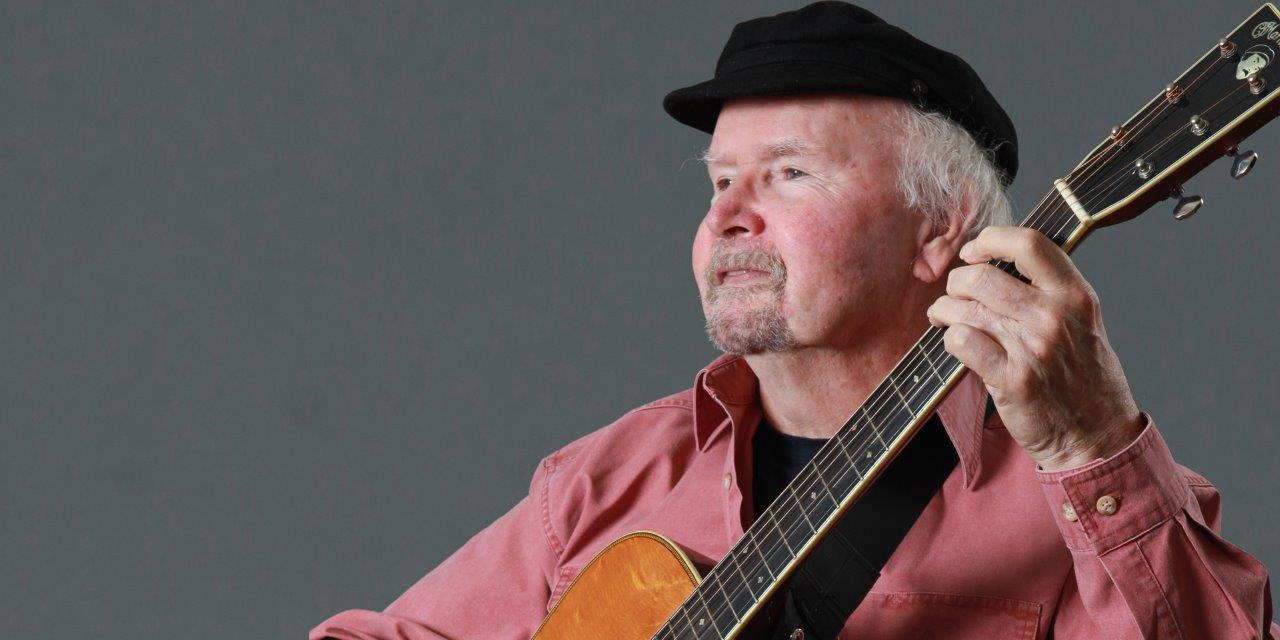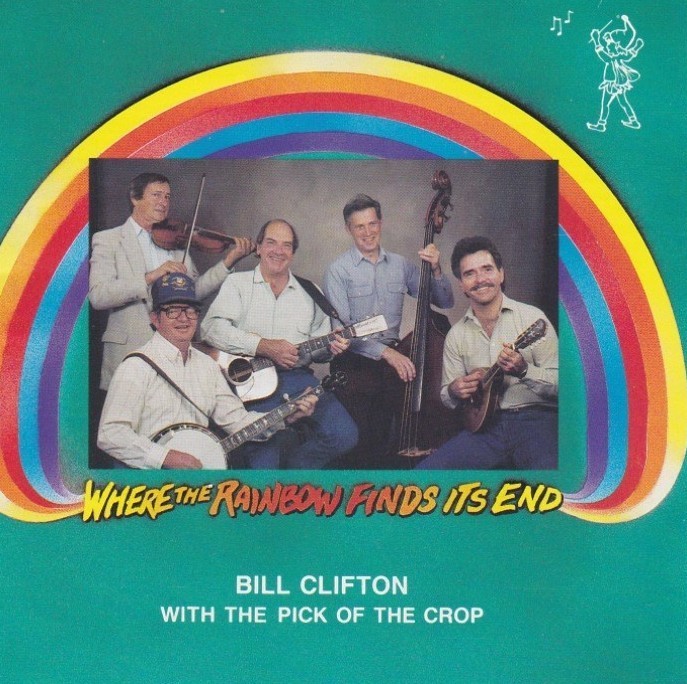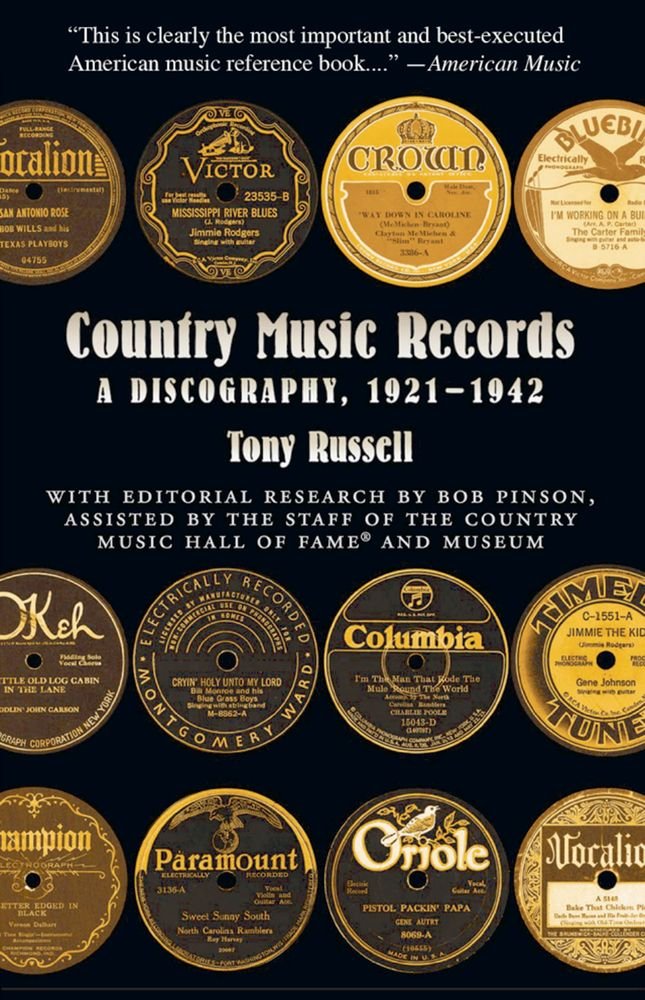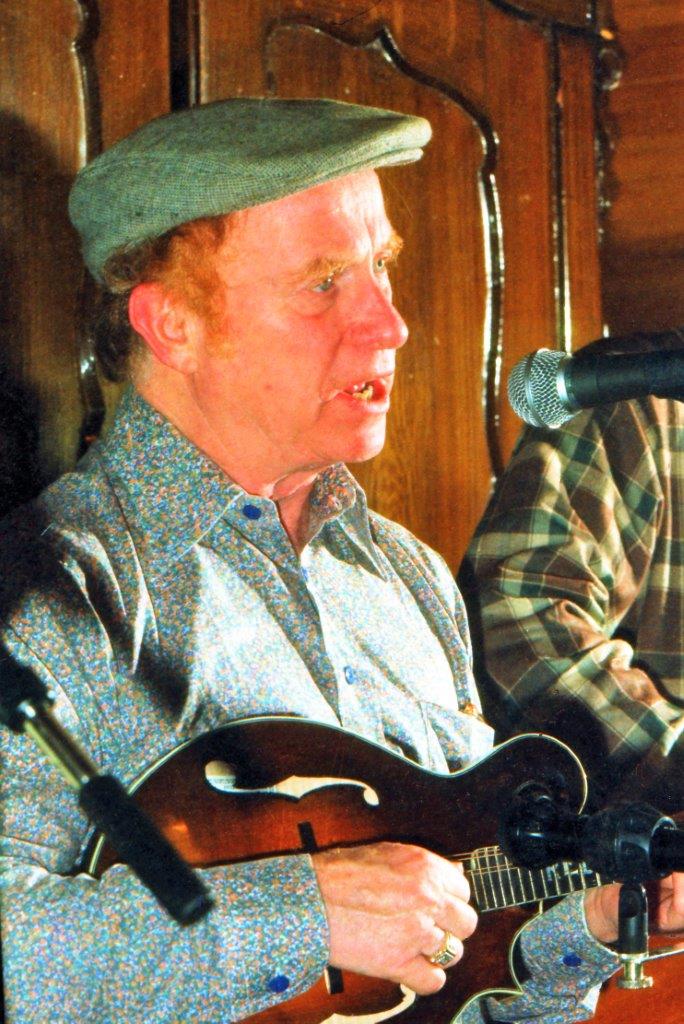En zo komen we aan het einde van de tweede CD met opnamen van ons grote interview met Bill Clifton. We hebben echter nog een stukje te gaan. De volgende post zal er eentje zijn met een nieuwe kopfoto (de foto bovenaan het verhaal). Ik probeer voor elke CD van het oorspronkelijke interview een nieuwe kopfoto te vinden. Verder wens ik jullie uiteraard weer veel lees- en luisterplezier toe. Heeft u toevoegingen, opmerkingen en/of commentaar; ik hoor het graag in de reacties onderaan deze post…
Origin of Songs
Transcription:
It was Tom Paxton, wasn’t it? It was Tom Paxton and he came over a year later. And when he came over some people I knew went to his concerts and one of them went up to him and said: ‘you altered the tune to that’. He said: ‘No’. And he said: ‘Well, I’ve been hearing Bill Clifton singing that song for a year and he doesn’t sing that tune’. I said: ‘Oh?’ ‘Okay’, I said, ‘I guess I didn’t learn the tune right’, you know. And then Pete Seeger came over and he was visiting us in England and I said something to Pete about it. I said: ‘Pete, I just had this terrible thing…’ And he said: ‘That’s nothing. I’ve been singing the wrong words to that for a year now, so…’. Join the club, you know.

But Tom Paxton has more songs like that, like ‘Whose Garden was this?’ and things like that. Yeah, oh yeah. Tom has written very much in the traditional style. And of course he wrote that one: ‘Bottle of wine, bottle of wine’ (singing). After being at Newport he wanted to Mississippi John Hurt to sing it. And so he wrote it especially for John Hurt. Which could have been something that John Hurt could have gotten from anybody down there, you know. I mean it sounded the same as anything that he could have found down there. Yeah, there are people like that who write that way and there’ve been other writers, several others that I’ve favored over the years. Who’ve written very much in the traditional style? But mainly I like the old songs because they were written not to make money but they were written because people felt what they felt. And that comes out in the way a song is written. Too many times, I think, very good songs are just left behind in the dust because everybody is trying to write a new song so they can get a copyright on it and make some money off of it. This is understandable. But then, what happens to all those goods songs that are still lying around collecting dust if you don’t get out and sing them. So I’ve always wanted to dig around and find some of the old songs that aren’t being sung. And maybe songs I don’t know at all, a song that maybe I’ve heard the title to it and I think, ‘Well, that might be a good song, I’d like to find a recording of it and hear it’. And when I do sometimes I’m disappointed and at other times I think, ‘That’s a great song.’

If you find an old song and you don’t know its origin will you try to find where it comes from? Yeah, I always try to find out where it comes from but Fm not always successful. I mean, there are times when I find a song, like on the most recent CD I did I have a thing called ‘Rainbow’s End’, which I’d heard sung on radio only and never had heard a recording of it. And to my knowledge it never had been recorded. And then I got this book that Tony Russell has just put out, and found out that in fact it was recorded in 1934 by somebody I’d never heard of and I don’t remember the name of that person. And then again in 1942 for Canadian Bluebird by Hank Snow, before he moved to the United States. I didn’t know that he had recorded it.
Is that the book covering the period of 1927 to 1942, I believe? [Should be 1922 to 1942]. That’s it. And it’s a brand new book and it’s… have you seen it?

I’ve heard of it but it’s an expensive book. It’s a very expensive book. Tony has really done his research on that. He spent years and years, I think like nine years, or more putting it together and he’s really done a great job on it. Tony is a person once he gets dug into something heil get it right. And he’s really gotten it right this time. And I wish I’d had that book before I wrote the notes to my most recent CD. Because I only got the book like two weeks after the printing had already been done on the jacket for the CD. So it was too late to change that. But to me ‘Rainbow’s End’ was a radio song that I’d heard sung only on radio and had never heard anybody record it. And never heard of anybody that recorded it. And that was true of some of the things that Red Rector and I used to do. Red used to listen to the radio. He and I were the same age; he was a couple of years older, a year and a half older. He and A.P. Carter had the same birthday and I didn’t know that until I had been with Red for a little while and, you know how people who look at the stars and are interested in astronomy and so forth find that certain people you have a very strong relationship with. Well, I had a very strong relationship with A.P. Carter and I knew I had a strong relationship with Red before I met him but I didn’t know what his birthday was. And it turned out that they had the same birthday.


Dat is nou het mooie van Bill aal dei achtergrond kennis en de verhoalen. Moar vlak ons ook nait oet Harry. Wie hadden/hebben ook (nog) redelijk veul kennis in de harsens. Muzikanten bie Rienk vonden dat altied weer mooi!
En daar plukken we nog steeds de vruchten van…
Dank je, interessant verhaal, jammergenoeg te kort… Allerbeste wensen voor een gezond en gelukkig nieuw jaar!
Dankjewel Dennis! Ik ga gewoon lekker door; ‘k heb nog wel een en ander liggen. Langzamerhand is het één van de series op deze site waar ik het meeste plezier aan beleef. En ook voor jou en de jouwen natuurlijk de beste wensen voor het nieuwe jaar. Ik Groningen zeggen we dan altijd ‘veel heil en zegen’; dat is wat ik jullie toewens.
Je kunt trouwens doorklikken naar voorgaande en volgende afleveringen in de serie. Wist je dat?